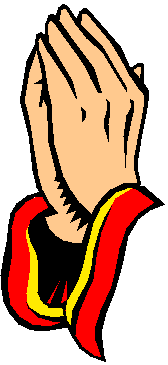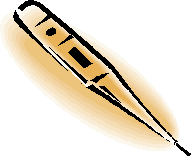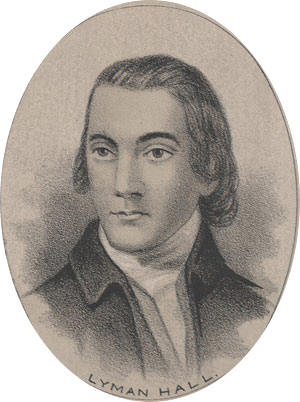 Lyman Hall
Lyman Hall
 Lyman Hall
Lyman Hall
 Minister and doctor, Hall's desire for liberty was
deep.
Minister and doctor, Hall's desire for liberty was
deep.
Georgia was slow to agree but finally made freedom's leap.
Lyman Hall was identified as a Congregationalist by The Congregationalist Library and the Georgia Public Library Service. Ian Dorion, "Table of the Religious Affiliations of American Founders," 1997. An uncle, Reverend Samuel Hall trained him in theology.
After graduating from Yale College, he went home and into the Congregational ministry; and he began preaching in Bridgeport and adjacent towns. Partially supporting himself by teaching, he studied medicine with a local doctor, later moving to Wallingford to set up a medical practice.

Image by Ole Erekson, Engraver, c1876, Library of Congress
At the age of 33, Lyman emigrated to South Carolina and settled amongst New England Puritans not far from Charleston. He soon joined some of the residents in a relocation to push southward to Georgia's coastal Midway District in St. John's Parish of Liberty County. As it was a frontier settlement, he and his property were in proximity to great danger, close to the Creek Indians and to the royal province of Florida. Robert G. Ferris (editor), Signers of the Declaration: Historic Places Commemorating the Signing of the Declaration of Independence, published by the United States Department of the Interior, National Park Service: Washington, D.C. (revised edition 1975), pages 65-67.
The parish of St. John was one area of Georgia that was quick to perceive encroachments of the British. "The community in which he lived was strongly imbued with the same feeling, for the people brought with them from New England the cherished principles of the Pilgrim Fathers--principles that would not brook attempts to enslave, or even to destroy a single prerogative of the colonies." From Lossing's 1848 "Lives of Signers" Dr. Hall was among the first to observe and speak against the misrule of England, but most of Georgia viewed the dissatisfaction of the patriots to be a temporary sentiment. They did not choose to send a delegate to the General Congress.
Taking an independent stand, St. John's Parish chose a representative to congress, voting for Doctor Hall unanimously. Though not an accredited delegate, he was admitted by vote of Congress, took part in the debates, and signed his name to the Declaration.
In the cause of America he was uniformly a patriot. In the incumbent duties of a husband and a father he acquitted himself with affection and tenderness. But, reader, above all, know from this inscription that he left the probationary scene as a true Christian and an honest man. From inscription on monument in Connecticut erected to Hall's memory.
http://www.adherents.com/people/ph/Lyman_Hall.html
Rev. Charles A. Goodrich Lives of the Signers to the Declaration of Independence. New York: William Reed & Co., 1856. Pages 455-457.
Let us hear the conclusion of the whole matter: Fear God, and keep his commandments: for this is the whole duty of man. Ecclesiastes 12:13